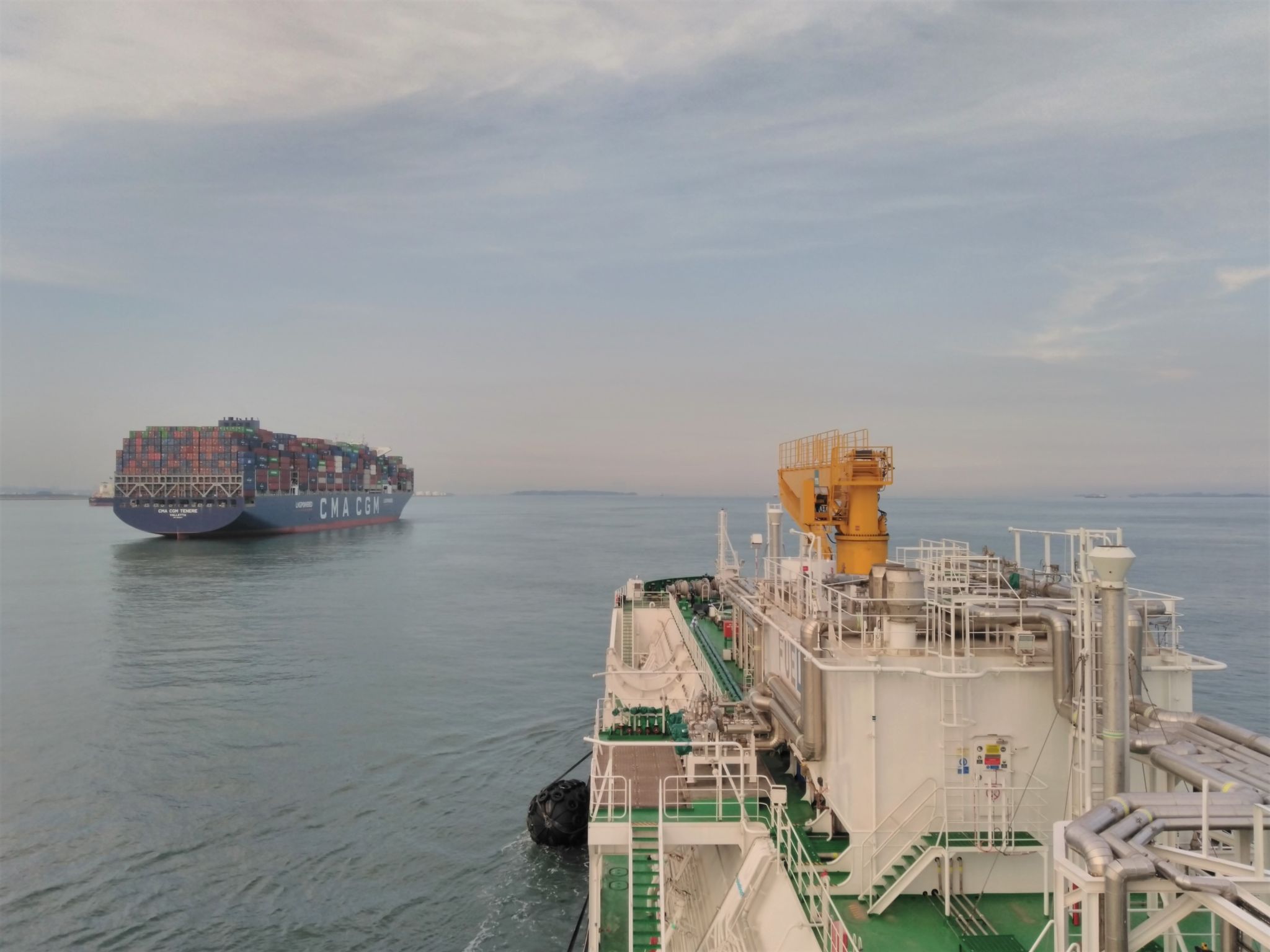Classification society DNV has added 7 LNG-powered ships and 12 methanol-fueled vessels to its Alternative Fuels Insight platform last month.
So far this year, the total order figure for alternative fuel vessels stands at 73.
DNV also reported that the official count of orders for vessels with battery power has passed 1000.
“In May container vessels and car carriers continued to dominate the orders for ships equipped to use alternative fuels,” Martin Wold, principal consultant in DNV’s maritime advisory business, said.
“Following the normalization of gas prices, the LNG bunkering market has now returned to full strength and we see a potential shortage of LNG bunker vessel capacity from 2025, and for some locations and periods this may occur even sooner,” he said.
The January-May period of this year has been slow for LNG-powered newbuild orders after a record 2022 with 222 orders.
In January, DNV reported no orders for LNG-powered vessels, while there were 10 LNG dual-fuel ships ordered in February, 8 in March, and 10 in April.
The most recent orders for LNG-powered vessels include Yang Ming’s 5 LNG-powered containerships and Zodiac Maritime’s 2 LNG-fueled car carriers.
399 LNG-powered ships in operation
DNV’s platform shows that 399 LNG-powered ships are already in operation, while owners placed orders for 512 LNG-fueled vessels.
LNG-powered crude oil tankers lead the way with 58 in operation, followed by 49 containerships, 46 oil/chemical tankers, and 44 car and passenger ferries.
As per vessels on order, LNG-powered containerships account for a big part of the orders with 190 units. Shipping firms also ordered 122 car carriers, 42 oil and chemical tankers, 39 crude oil tankers, and 36 bulk carriers.
These statistics do not include smaller inland vessels or dual-fuel LNG carriers.
43 LNG bunkering vessels and 182 LPG-powered ships
Besides LNG-powered vessels, there are 43 LNG bunkering vessels in operation and 21 on order, the platform shows.
In addition to 911 confirmed LNG-powered ships, the fleet powered by alternative fuels also includes 182 LPG-powered ships, 127 methanol-fueled vessels, and 27 hydrogen-fueled vessels, according to the platform.

